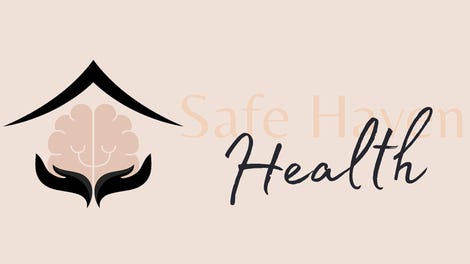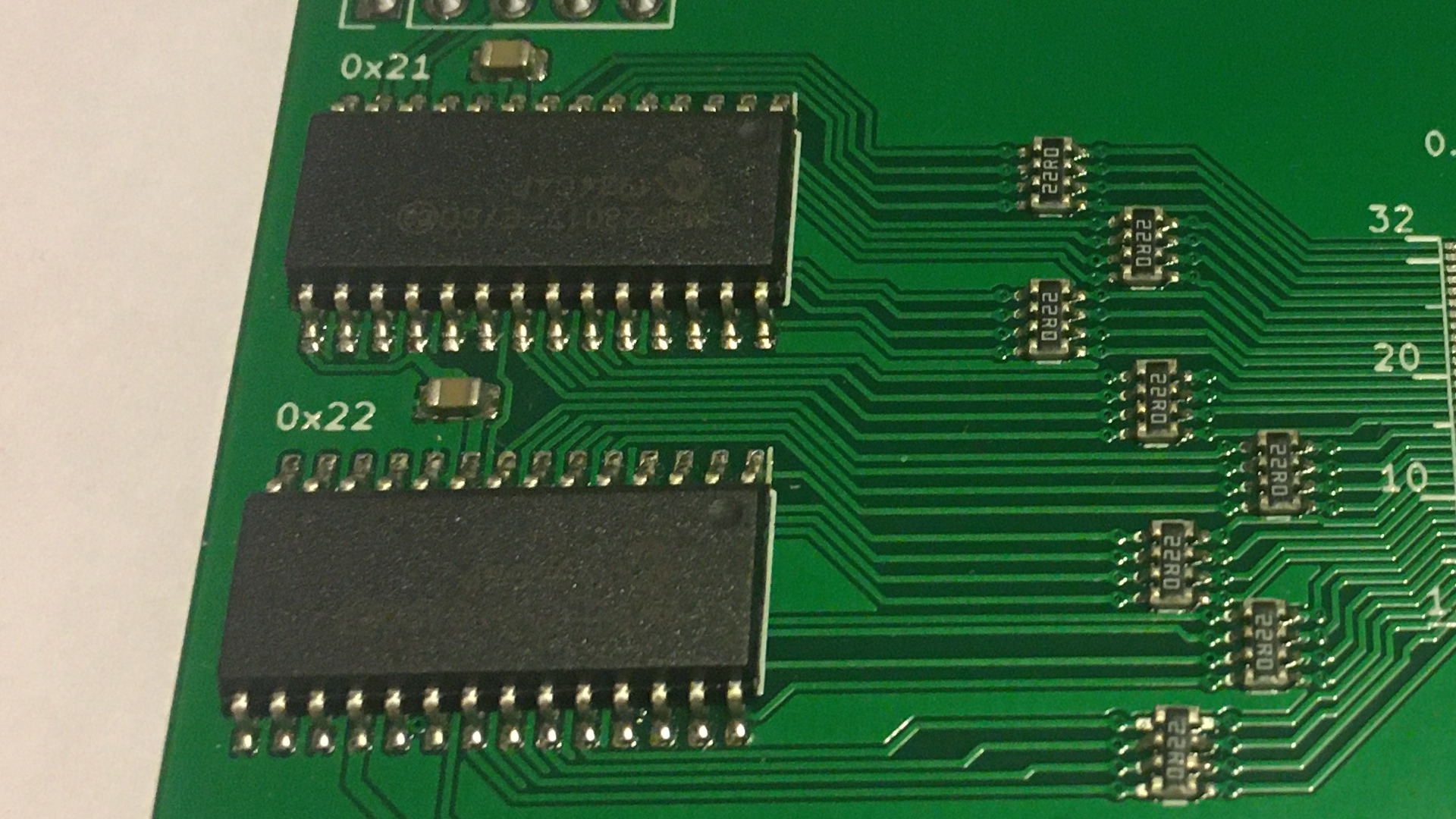
Author Laline Paull scored a hit with her 2015 debut The Bees, dubbed “The Handmaid’s Tale meets The Hunger Games,” but with bees as its characters. Her latest, Pod, dives into a different aspect of the natural world—the ocean—by introducing an adventurous dolphin who follows an unconventional path. io9 has an excerpt to share today from this intriguing new novel.
Here’s a description of Pod’s story, followed by its cover, prologue, and first three chapters.
Ea has always felt like an outsider. As a spinner dolphin who has recently come of age, she’s now expected to join in the elaborate rituals that unite her pod. But Ea suffers from a type of deafness that prevents her from mastering the art of spinning. When catastrophe befalls her family and Ea knows she is partly to blame, she decides to make the ultimate sacrifice and leave the pod.
As Ea ventures into the vast, she discovers dangers everywhere, from lurking predators to strange objects floating in the water. Not to mention the ocean itself seems to be changing; creatures are mutating, demonic noises pierce the depths, whole species of fish disappear into the sky above. Just as she is coming to terms with her solitude, a chance encounter with a group of arrogant bottlenoses will irrevocably alter the course of her life.
Here’s the full cover; credit goes to Faceout Studios, Molly Von Borstel.

G/O Media may get a commission

Addiction counseling
Safe Haven Health
Accessible for all
Safe Haven prioritizes your needs with flexible and individuated substance abuse treatment, specifically opioid & alcohol addiction.
i want to go home,
but home is the mouth of a
shark home is the barrel of the
gun and no one would leave
home
unless home chased you to the shore
– Warsan Shire, ‘Home’
It is not down in any map; true places never are.
– Herman Melville, Moby-Dick
Prologue
Half-dreaming at the surface, Ea wakes in an instant, her reflexes always on high alert. But it is only a wild and lusty chase. The young couple leap, splash back down and then, twirling in their bubbles, join together belly to belly. Ea admires their dance. Some things never change.
Others do. Within three generations, this pod has racially blended into a new tribe that mixes spinner grace with bottlenose strength. Like all the old, Ea finds the young more beautiful every day, but she would not go back. Time goes so fast now anyway, calves barely weaned and now mating, dusks and dawns racing each other as if the whole ocean has accelerated to a new rhythm. She does not mind, because it means reunion comes closer, with the ocean and with one whose heart still beats in hers. Since the seasons blurred, the moons lost their meaning and it is not for her to dictate the spawning of fish or coral. It is odd, at this time of her life, to miss the rituals she so resisted when she was young. Perhaps none of this would have happened if she had not. Everything broke apart, but Ea no longer blames herself. What happened was bigger than any fault of hers.
Ea watches the amorous young couple, now drawing an excited throng. If she and her dwindling cohort of elders find the younger generations shallow and lacking in curiosity, they keep it to themselves. They avoid nostalgia and unless some rare youngster makes reference to it, they even forget they are of different races. Ea is the last spinner dolphin of the remote and peaceful Longi tribe. The other elders are bottlenose dolphins, of the once notorious Tursiops megapod. Hard to believe how once they clung to those identities.
Ea tries to live in the moment, knowing each peaceful day is a gift. Even if she can never quite relax. Some nebulous feeling, some old vigilance wakes her in the deep of the afternoon, when the rest of the pod is asleep. Then she listens to the ocean with all her attention, but there is nothing unusual to hear. No grinding horrors, no cries of pain. Sometimes one of her fellow elders wakes shrieking, dreaming in red water. Ea is glad to be there to give comfort. It is over. This is a different place.
Sometimes Ea wants to share her story so that people know what it cost to be here. But kind and respectful to the elders as they are, the young dislike their painful tales. Ea understands. She was once the same.
The truth is hard to believe, harder to bear.
1
Pelagic, of the Sea
Just below the equator, somewhere in the Indian Ocean, is a curving archipelago almost four hundred miles long. The biggest and most easterly island starts the chain which dwindles to the west, terminating in three tiny atolls. There is a gap in the chain where, in the latter part of the twentieth century, one atoll was completely vaporised during nuclear testing.
These troubled waters shelter broken nations, refugees and ghosts, but this is the story of two estranged cetacean tribes, cousins with a painful past. The first are the Longi people, a tiny pod of Stenella longirostris, or spinner dolphins. The second is the megapod of common bottlenose dolphins, or Tursiops truncatus, who drove the Longi from their home and took it for themselves.
Each pod has pride and virtue, each feels above the other. They do not know they share one fatal flaw: they think they know this ocean.
2
Unnatural Child
The glow of dawn marked sea from sky as the silver Longi pod streamed back from another successful night hunt. Young Ea was ready to put her plan into action, edging out of the throng coming up the wide channel back into the safety of the lagoon homewater. As soon as she was in she peeled off to the side, subtly so she would not be seen leaving the group, but determined not to get caught up again in the daily lovemaking. Ea was indignant and upset that because she rejected every suitor, she was the one considered to have the problem. She was neither tired nor unwell, she just did not want to have sex and she did not care how healthy a pastime it was. Coming of age was something she had secretly looked forward to for quite another reason, and it was a colossal and bitter disappointment. Her hearing did not improve, the music of the ocean did not miraculously burst into her mind. Instead, the ugly frightening sounds continued that even her own mother suggested might be in her imagination. Ea alone suffered them, furious and ashamed that somehow she might have brought that pain and fear on herself.
She knew she was valued for being a good hunter, but what Ea craved was to be normal. To spin like everyone else was the key to fitting in, and if she could only hear the music of the ocean like everyone else, she too would be able to tune in and do it. She was fast, healthy and wanted so badly to succeed – but she had never heard the music. Spinning was the Longi’s art form, it was dance, athleticism, most commonly just for entertainment and sport, but it also held a spiritual element. It was union with the ocean itself and everyone who experienced that state even once, shone with authentic Longi joy. Calves learned by puberty, but by maturity, Ea knew her attempts were empty technique with graceless result. There was no explanation for Ea’s peculiar acoustic disability, which caused her to suddenly start in fear at disturbing noises in the water. Perhaps she was too sensitive, even by Longi standards. The sounds came unpredictably, straight into her sonar melon and painful enough to send her whirling off course to avoid them. At those times people encouraged Ea to spin to transcend her fear, but that only resulted in her greater frustration and headaches that lasted for days.
Obsessed and envious about other people’s spinning, not a day passed when Ea did not secretly try, one last time, to hear that healing music – but the ocean continued to withold that gift. Anger became her way of coping. If she could not have it, she did not want it. She could hunt, that would have to be enough. She was an outsider with a reputation for being difficult, and only her mother knew how badly she grieved, and how much she hated pity.
Sexual maturity was a disappointment and a shock. Disappointment that her hearing did not improve, and shock that, despite her awk- wardness, she was inundated with suitors. Ea assumed that her ugly inner world of bad thoughts and cravings and resentments meant her outer self would match – but that was far from the case. All the Longi people were beautiful, but she was exceptional. In Ea, the grace of her people was exaggerated, from the long black lines around her eyes, to the flashing pearly belly marked with long glittery dashes increasing the impression of her considerable speed. The Longi had exquisitely shaped pectoral fins and tail flukes and in this Ea was no different, but her face set her apart. Her long rostrum, or beak, was slightly more elongated than usual, and the rounding of the bone above the eyes, a little wider. Her eyes were more precisely slanted in the outer corners, and the black line around them, a little thicker. To swim with her on the hunt was to experience her natural grace in motion, and it was very hard to believe that she could not spin. That was why even though people knew about her hearing, they still infuriated her by urging her to keep trying.
There was no music. That part of life was not for her. Ea practised acceptance.
Now she was out of the throng, swimming silently across the lagoon, slow enough not to cause a wake and draw attention to herself, but fast enough to get beyond where they would spot her and call her back. She was going to her refuge, the black coral wall where lived an ancient moray colony. It was a dark forbidding place where the water had a different texture, and Ea was the only person who ever went there. The adult Longi respected the morays but could not help their aversion to their unattractive faces, while the calves shuddered at the sound of those vicious neighbours on the far side of the lagoon.
She had found the wall by accident, searching for a remote place to sulk. She came upon them with such a shock she almost opened her blowhole. The great eels swayed halfway out from their crevices, staring at her with hot little yellow eyes. Fascinated, Ea saw a sophisticated intelligence in their wicked faces and was no longer frightened. When they stopped glaring and returned to mysterious inner contemplation, she correctly took it for tolerance of her presence and felt flattered. The moray wall became her secret refuge, and her mother kept that knowledge to herself.
Ea was almost there when the sun lit the horizon and she passed over the colourful coral plaza of the lagoon floor. Behind her in the water were the sounds of the pod at play, the adult trills of pleasure, the shouts of the calves in the nursery area. She could pick out the gossipy clicking and buzzing of the post-hunt discussions, and it gave her some satisfaction to know she and her mother had once again excelled. They had their own silent language that her mother had taught her when she realised Ea was different; it was their secret.
Today the morays were expecting her, swaying halfway out of their holes, some holding themselves in shafts of light as if to show off their elaborate patterns. There were her favourites, the huge dark blue and black one with the mottled brown spots, and the livid yellow and green one with the grey lines. Others remained in camouflage, thick shadows with yellow eyes. They made no attempt to be friendly and expected no courtesies and Ea was glad to see them. She had just taken a large diving breath to go down to visit, when a distant howl came through the water.
It was not one of the frightening noises deep in her head nor was there any pain in her sonar melon. It was a real sound from a living being, but coming from further away than a dolphin could click. There it was again, fine and distant and so precise that she knew it was not the cry of an attack or of being wounded, nor the music of the ocean, because no one would spin to that. Someone was sending that sound out across the vast. It was a message.
Ea positioned herself the better to receive it. She had an odd sensation in her heart, as if it were swollen and tender. The sound – and then silence. She listened with all her attention. There was nothing for so long she thought she might have imagined those new sounds, which would be an improvement – but then it came again. This time it was a cacophony of booms and slams, then silence, then one more howl. There was a pattern.
It was a whale, it had to be. Ea had never seen or heard one before but she knew they were distant cousin kin. Though she couldn’t decipher the meaning, the sound pulsed in her blood. Was the whale singing in Old Pelagic? No one used it any more, but the Longi click derived from it, and she remembered her mother telling her it used silence as well as sound. Ea went to where the black wall was crumbling, the better to listen.
The distant whale boomed again like faraway thunder. Then as his great billows of sound were still travelling across the ocean, he wailed across the top of them in a harsh and soaring lament that filled Ea with sadness and rage. It faded away, and the silence that followed had a different quality. It was over. The whale had passed on, leaving Ea with the ache of relief that someone else understood loneliness and pain.
A hiss made her whirl round. The great eels were fully emerged from their holes, their hooked jaws beginning to open. They had been waiting for her, but in her excitement at the whale she had forgotten her normal respectful mode of arrival and had ignored them. Now they were offended. She knew it by their hard eyes and the way they raised their long serrated dorsal fins. The hiss was all around her in the water, growing stronger.
Go . . . go away . . .
Ea shook the whalesong from her mind and drew back from the morays. They were not her friends and they were expelling her. But she could not go back to the pod yet because she did not want to make love with anyone and she felt too raw from hearing the whale, to go back and be polite.
Without seeming to swim the morays had come closer, their dorsal fins rippling in a current only they could feel. They were staring at her, no longer tolerant. Panic flared in her. To move she would have to pass so close to those jaws; they could scar her so easily.
Come, Ea, this way, come now, my darling—
It was her mother’s voice in her head, in their silent hunting language. Ea turned to see that she was there, and her relief was greater than her indignation at the intrusion.
She rushed closer, and big as she was, tucked herself in echelon position behind her mother’s pectoral fin. Her mother shielded her in the turn and together they left the moray wall and ascended to breathe at a safe distance. They floated on the surface without speech and although Ea was upset her sanctuary had been discov- ered, curiosity overcame her sulk.
Who was the whale? she asked, not in their private language but in the Longi click.
A rorqual whale of some kind, her mother answered. He passes this way sometimes.
Why does he not visit us? I thought we were cousins.
Ea felt her mother’s loving energy waver for a moment.
Distant. He travels on an old songpath of his people . . . But why is he so sad?
Ea felt the water pause around them, then her mother resumed her soothing attention.
You understood his song?
He made me feel sad. That’s all. I didn’t understand. Was it Old Pelagic?
It was. That’s clever of you to remember. How did you know?
You said it uses silence. Like when we hunt. What does he sing about? Ea felt her mother thinking too long about the answer, which meant she was hiding something. Tell me! she buzzed, rudely. If I’m old enough to be forced to dance Exodus—
Exodus is all of our responsibility, Ea, not just yours! It is our duty to those who helped us be here now! If you want to know so badly, the whale sings of pain and death. But he sings for his own people, not ours. Does that satisfy you?
We have to help him. Energy rushed through Ea as if she had swum through a shoal of jellyfish. She had understood him.
We can’t. There’s nothing we can do. Ea stopped in complete surprise. We? Does everyone hear him?
Her mother came close alongside, so that Ea could feel her warmth and love.
It does no good to hear pain, Ea. We choose to hear the music, we spin— Well, I can’t, and I hear pain! So I have to do something about it. You can, my darling. Enjoy your life.
What good does that do?
Ea’s mother did not answer, but went ahead a little way. They had crossed the lagoon and were almost back at the main group of the pod. The loving moil, that daily erotic gathering from which Ea fled, was over. The pod was ready for sleep. All was peace and beauty.
Ea forgot the confused and frightened parts of herself and instead felt the pleasant bodily fatigue from the hunt. For now, there would be no ardent suitors. When she tried to remember the whale’s song, it was gone.
Shh . . . peace, darling. Her mother took her sleeping place with her friends, and rolled in the water to let her warmth curl out to Ea. It was the Longi invitation to sleep alongside one another, and Ea needed the comfort. As the sleeping pod rose and fell at the surface she sank into the group rhythm, first resting one eye and brain hemisphere and then the other, so that in synchronised vigilance, all were protected.
Beside Ea, her mother remained awake until her beloved, troubled daughter sank into sleep. Only then did she too enter the deep rest state.
3
Exodus
Beside her sleeping mother, Ea breathed carefully so as not to disturb her and lay at the surface fully awake, troubled by many things, new and old. New was the baffling information that perhaps the whole pod heard the whale in pain but said nothing about it, and old was the imminent matter of the dreaded Exodus. The thought fluttered Ea’s heart like a wounded fish. The ritual dance was still two whole moon-cycles away from performance, which happened just at the rising of the great full moon of the summer. The pod loved to return home together just as the ocean spawned in an orgy of lust and release, and then they too would make love.
Ea now wondered if she was the only one anxious about it, because there was a rising tension in the pod as people started to practise for it. The most athletically and creatively talented spinners had been finessing their technique, while the less gifted went around reassuring themselves and others that everyone would rotate in from the outside in a fair and safe way, as the pod travelled during the ritual. Exodus could not be held in the safety of the lagoon because it required greater speed than the space allowed for the spins and leaps that were vital to expressing real fear, triumph, liberation and transcendence. For Ea, it was just another opportunity for humiliation and failure.
She knew and respected the fact that Exodus was the Longi people’s kinetic prayer of thanks to the ocean for the survival of their pod. All calves learned the story of how the Longi had been forced out of their beautiful original homewater by the invasion of the cruel barbaric Tursiops tribe. Their passage across the ocean from that moment was perilous and marked with many losses. It was commemorated in this group dance of spinning, formal and spontaneous falls and splashes, which traced a large circular shape that took the pod from the safety of the lagoon out into the vulnerability of the vast where it reached its climax; then on safe return to the homewater, everyone could put the story behind them for another year.
Ea knew the story backward and forward. All the calves and youngsters grew up thrilled by the annual summer practice of the adults just beyond the lagoon. They could not wait to learn the dazzling travelling spins and astonishing percussive falls, and Ea’s own mother often numbered more than seven revolutions. The spins linked to certain splashes and falls which also had mean- ing both in the sounds underwater to the whole pod, and in the effervescent lyrics they pulled down around them. But first you had to tune yourself, body and soul, to the music of the ocean. Watching her mother’s silver form throw out sparkling spirals of water, awestruck little Ea had found it sublimely beautiful. Her mother’s artistry left airy poetry trailing in the water behind her; her splashes and falls were rhymes of sound.
Now, years later, Ea only felt dread at the prospect of joining in. Spinning in Exodus could bring on a trance state, and she had many times witnessed her mother helping to restore the senses of those who had slipped into it and could not return alone. Sometimes people had visions and even channelled spirits of the ancestors. Sometimes they believed they had already joined the ocean and had to be called back so that they did not prematurely leave their bodies for good. Then other people would gather around the one who was alive but drifting in another ocean, and their touches and clicks would bring them back to the pod. Ea already had trouble with her imagination, and so the very last thing she wanted was a frightening vision or uncontrolla- ble experience. The whalesong today was different. The tender sonic pains echoed in her mind. Someone, somewhere, was a kindred spirit.
Excerpted from Pod by Laline Paull. Published by Pegasus Books, February 2023.
Pod by Laline Paull will be released February 7; you can pre-order a copy here.
Want more io9 news? Check out when to expect the latest Marvel, Star Wars, and Star Trek releases, what’s next for the DC Universe on film and TV, and everything you need to know about the future of Doctor Who.
#Laline #Paulls #Immersive #Pod #Exclusive #Excerpt






